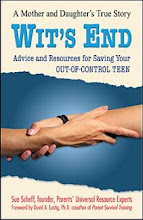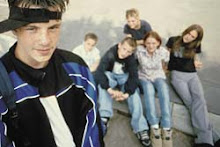
Every year thousands of teens across the country become ensnared in the dangerous and misunderstood world of cults. These hazardous entities prey on the uncertainty and alienation that many teens feel and use those feelings to attract unsuspecting teens into their cult traps. As a figurehead in the world of parent teen relations, Sue Scheff™ knows the danger of cults and teenagers’ susceptibility to their temptations. Sue Scheff™ believes that like many other teen\ ailments, the best defense against the world of cults is through education.
No teen actually joins a cult, they join a religious movement or a political organization that reaches out to the feelings of angst or isolation that many troubled teen’s experience. Over time, this group gradually reveals its true cultish nature, and before teens know it, they are trapped in a web they can’t untangle.
With the strong rise in teen internet usage, cults have many ways to contact children and brainwash them. Sue Scheff™ knows the dark side of the internet from her experience with teenage internet addiction, and she understands it is also an avenue for cults to infiltrate teenage brains.
Cults have long been represented in the mass media. The supporters of Reverend Jim Jones People’s Temple may be some of the most famous cult members, making global headlines when they died in the hundreds after drinking Kool-Aid laced with cyanide. Almost 300 of the dead Jones supporters were teens and young children. Heavens Gate is another well known cult, which believed ritual suicide would ensure their journey behind the Hale-Bopp comet with Jesus. Heavens Gate lived in a strict communal environment, funding their cult endeavors through web site development. Some male members of the cult even castrated themselves before all 36 committed suicide, wearing matching sweat suits and Nike tennis shoes.
It is clear that despite the ridiculous and bizarre nature of many cults, parents can’t ignore the power and resourcefulness of these groups. Cult ideas may seem to loony to take seriously, but they can have real power when used against troubled teenagers, the exact type of teens that Sue Scheff™ and other parent advocates have been working to keep safe.
Cult influence should not be taken lightly, especially when living with a troubled teen. Parents may not think of cults as a problem because they don’t hear about them a lot, but that’s the key to cult success. The livelihood of teen cults relies on staying out of the public eye and in the shadows. The Heaven’s Gate and People’s Temple cults didn’t truly gain public notice until after their suicides, and by then it was too late to save their followers.
The danger of teen cults is real, but parents can help ensure their teenagers’ safety by staying informed and communicating with their children. Sue Scheff™ presents a site with important information about different types of cults that target teens, warning signs of cult attendance, and ways to help prevent your teen from becoming involved in a cult. Knowledge and communication is always the first line of defense when helping a troubled teen.












